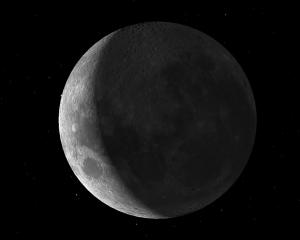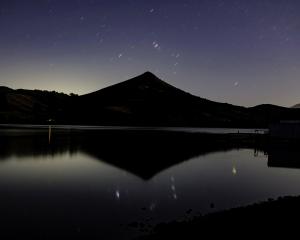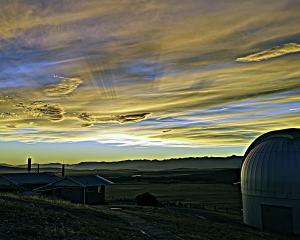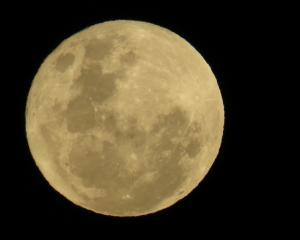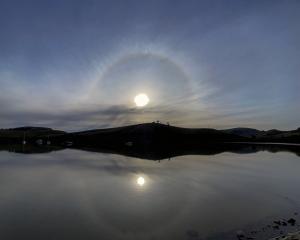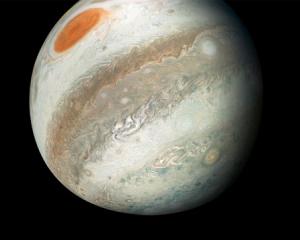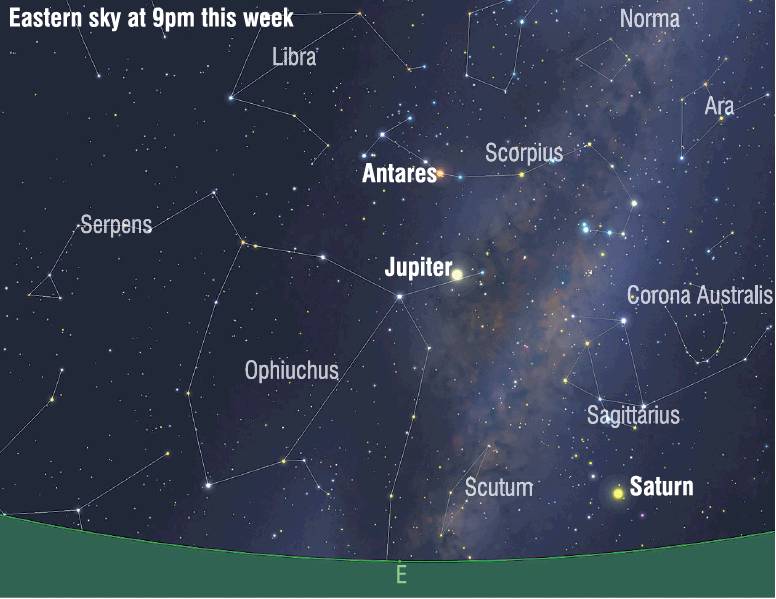
Skywatchers will get great views of Jupiter soon, writes Ian Griffin.
The next few weeks are perfect if you wish to get the best views of Jupiter. In the early hours of next Tuesday morning, Jupiter is directly opposite the sun in the sky.
The very next day at 3pm Jupiter reaches its closest point to Earth this year. This combination of circumstances means that the next few weeks are perfect if you wish to get the best views of Jupiter.
Because it is opposite the sun in the sky, Jupiter rises in the east at sunset and sets in the west at sunrise. It reaches its highest point at midnight, when it will be more than 75 degrees above the horizon, shining as an unmistakably bright yellow-white ''star''.
If you have a telescope, now is the time to dust it off and point it at Jupiter, because there's always something interesting to see on this fascinating giant gas world.
If you don't have a telescope, and live near Dunedin, then I suggest the next few weeks might be an ideal time to visit the Dunedin Astronomical Society's Beverly-Begg Observatory in Robin Hood Park (open every Sunday night from 7.30).
The society has some really lovely telescopes which will let you get incredible views of Jupiter, so it's well worth finding time for an outing.
One of the most prominent features in Jupiter's atmosphere is a giant storm called ''the great red spot'', which has been raging for several centuries.
In recent weeks some amateur astronomers have taken pictures which appear to show that the spot might be breaking up, so it is certainly worth keeping an eye on the planet.
If you do want to try to spot the spot for yourself, it will be crossing Jupiter's centreline at 9.34pm on Sunday, June 9, at 3.20am on Tuesday, June 11, and again at 11.12pm, also on Tuesday, June 11.
Jupiter is at present moving across a beautiful region of the sky in the heart of the Milky Way. The planet is in the constellation Ophiuchus, the Serpent Bearer.
Ophiuchus is one of the 13 constellations of the zodiac, which is the name astronomers give to a band in the sky through which the sun and major planets pass.





